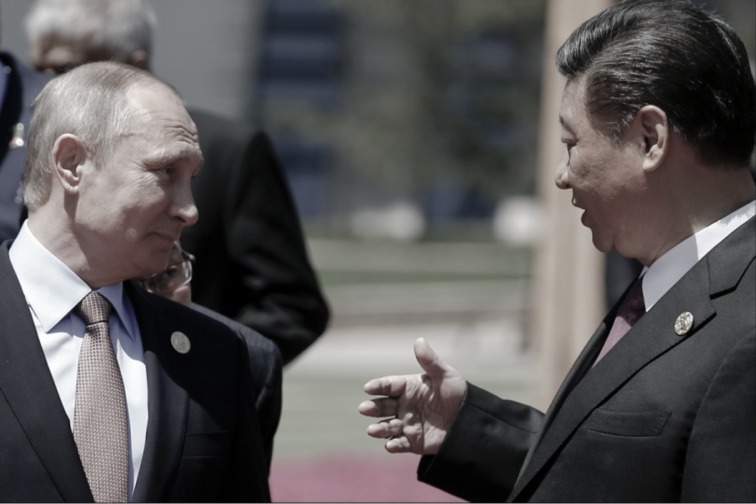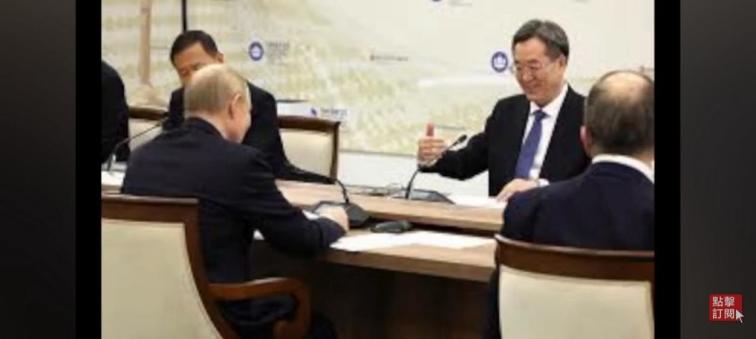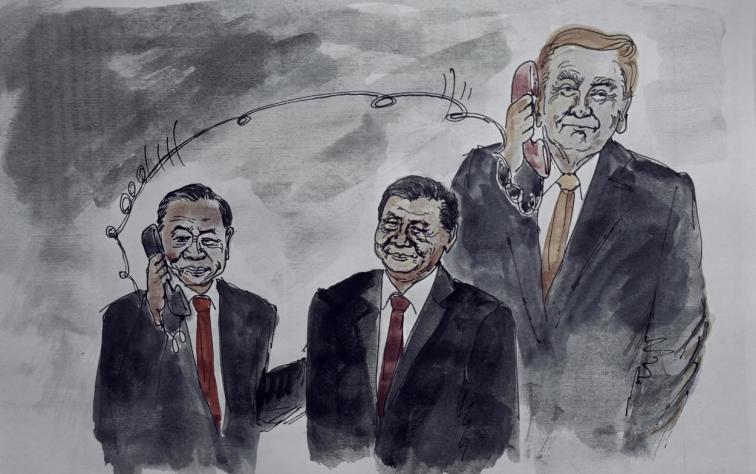Xi Jinping is more focused on competing with Western powers. (People News Illustration)
[People News] The Taiwan Strait crisis continues to attract international attention. On June 25, Italy’s major newspaper, Corriere della Ser,a included a special 63-page supplement titled The Red Prince Xi Jinping. The special edition not only reviews Xi Jinping’s personal history and his rise to power through life-or-death power struggles—where he “could have been killed 100 times”—but also includes a dedicated chapter titled “After Hong Kong Comes Taiwan,” detailing Xi’s next ambition: to seize Taiwan.
According to Central News Agency, the supplement, titled The Red Prince Xi Jinping, was written by Corriere della Sera’s veteran Beijing correspondent Guido Santevecchi.
The special report notes that due to the opacity of Chinese Communist Party (CCP) politics, Xi Jinping is unlike other world leaders—he has no personal social media accounts, and his office does not provide a public telephone line for media inquiries.
Regarding Xi’s public image, China’s state media meticulously selects his photos, and his speeches at meetings are often released months later. His private life is even more tightly guarded.
The supplement also points out that the CCP’s governance style is consistent: it ignores public concerns domestically and responds to the outside world with smokescreens or threats. As a result, no one can really grasp Xi Jinping’s thoughts. Foreign journalists in China often joke that “those who know can’t talk, and those who talk don’t know.”
The supplement states that after surviving brutal internal power struggles in which he “could have been killed 100 times,” Xi rose to tremendous power and became highly ambitious. After taking control of Hong Kong, his next goal is Taiwan.
It further highlights that since 2023, the CCP has intensified its military threats against Taiwan. Xi has completely abandoned any attempt to meet or negotiate with Taiwanese President Lai Ching-te. On one hand, state propaganda constantly vilifies Lai; on the other, Xi uses the so-called goal of “national reunification” to deliberately stir up a surge in domestic nationalist sentiment.
The supplement notes that the United States has long supported maintaining the status quo in the Taiwan Strait through a policy of “strategic ambiguity.” Regarding Xi’s ambition to invade Taiwan, a recent report from the U.S. Air Force’s think tank—the China Aerospace Studies Institute (CASI)—concludes that the Chinese military is incapable of implementing the crucial reforms needed to gain the combat power to take Taiwan by 2027. The report also cites a published article by Zhang Youxia, vice chairman of China’s Central Military Commission, which acknowledges that the military cannot meet Xi’s demand to be ready for a Taiwan invasion by 2027.
Amid rising tensions in the Taiwan Strait, U.S. Secretary of Defence Pete Hegseth delivered his strongest statement to date on May 31 at the Shangri-La Dialogue in Singapore. He warned that the CCP’s military threat to Taiwan is real and imminent, but also emphasised that under President Trump’s term, Beijing would not invade Taiwan. △
(Originally published by People News)











News magazine bootstrap themes!
I like this themes, fast loading and look profesional
Thank you Carlos!
You're welcome!
Please support me with give positive rating!
Yes Sure!